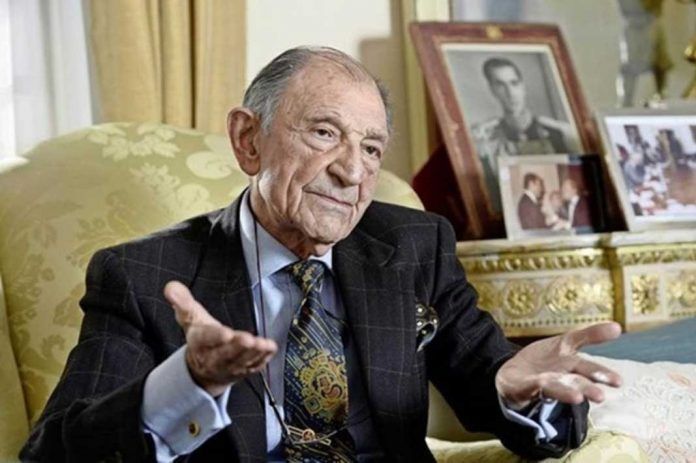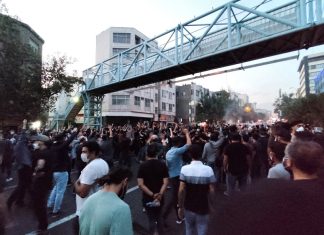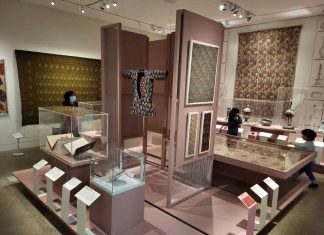By Kayhan Life Staff
Ardeshir Zahedi, Iran’s Foreign Minister from 1966 to 1971 and its onetime ambassador to Washington and London, died in Montreux, Switzerland, on Nov. 18, aged 93. The family of “Ardeshir Khan,” as he was called by many people who held him in high esteem, was close to the Qajar kings and to th Pahlavi dynasty.
Mr. Zahedi’s maternal grandfather, Mirza Nasrollah Khan Moshir al-Dowleh (1840-1907), was the first Iranian prime minister after the Constitution was introduced in 1907. Zahedi’s father, Fazlollah Zahedi (1892-1963), was a lieutenant general in the Imperial Iranian Army and the 36th Iranian Prime Minister (in office from 1953 to 1955) during the reign of the late Mohammad Reza Shah Pahlavi.
Ardeshir Zahedi married the late Shah’s eldest daughter, Princess Shahnaz Pahlavi (born in 1940) in 1957. However, the marriage lasted only seven years, and the couple divorced in 1964. After their divorce, Ardeshir Zahedi and Princess Shahnaz remained close friends, and their separation had no impact on Zahedi’s relationship with the late Shah.
Zahedi remained loyal to the late Shah and to the Pahlavi dynasty until the end. Upon hearing the news of Ardeshir Khan’s passing, Empress Farah Pahlavi released a statement, remembering Zahedi as an “esteemed statesman” and “an extraordinary human being who epitomized dignity and ethical and moral strength.”
Ardeshir Khan served twice as Iranian ambassador to the U.S. from 1960 to 1962 and from 1973 to 1979. He was also Iran’s ambassador to the U.K. from 1962 to 1966.
After attending elementary school and secondary school in Lebanon, Zahedi received a degree in agricultural engineering from Utah State University in 1950.
[aesop_image img=”https://kayhanlife.com/wp-content/uploads/2021/12/ardeshir-zahedi-1.jpg” panorama=”off” align=”center” lightbox=”on” captionsrc=”custom” caption=”Ardeshir Zahedi. KL./” captionposition=”left” revealfx=”off” overlay_revealfx=”off”]
Speaking at Ardeshir Khan’s funeral, the Iranian author Dr. Parviz Amouzegar, said: “Ardeshir Zahedi traveled to every corner of the globe — from the North to the South, from the East to the West — to speak to heads of states, diplomats, students, professors always to defend the true values and interests of his country and its glorious civilization. He was a citizen of the world and yet a devout patriot with unwavering loyalty to his beloved country, its noble people, its brilliant young generation, proudly considered as the architects of a bright future.”
Dr. Amouzegar noted that many world leaders “solicited” Zahedi’s talents “for mediation and face-to-face diplomacy” including “in the most critical case of the hostage-takings in Washington, saving the lives of 183 innocent people, preventing a devastating massacre with courage and self-sacrifice.”
In the last years of his life, Ardeshir Zahedi expressed some support for the Islamic Republic’s nuclear program, and described the late Lieutenant General Ghasem Soleimani, the former commander of the Islamic Revolutionary Guards Corps (IRGC) Qods Force (IRGC-QF), as “a patriotic soldier.” General Soleimani died in a U.S. drone attack on Baghdad International Airport on Jan. 3, 2020. The comments angered many people in groups and organizations opposing the Islamic Republic.
Speaking to a close friend a few years before his death, Zahedi had said: “People should not interpret my comments as supporting the Islamic Republic. I support the same policies that the late Shah promoted before the [1979] revolution. The important issue for me is for Iran to play a significant role in the Middle East.”
Ardeshir Zahedi was a precious and invaluable source of information for the modern history of Iran and the reign of Mohammad Reza Shah. He was a keen collector of historical documents. He meticulously catalogued hundreds of thousands of documents and photographs he had collected in the past 70 years and inherited from his father in 400 boxes, which he donated to the Hoover Institution at Stanford University’s Iranian Studies department before his death.






